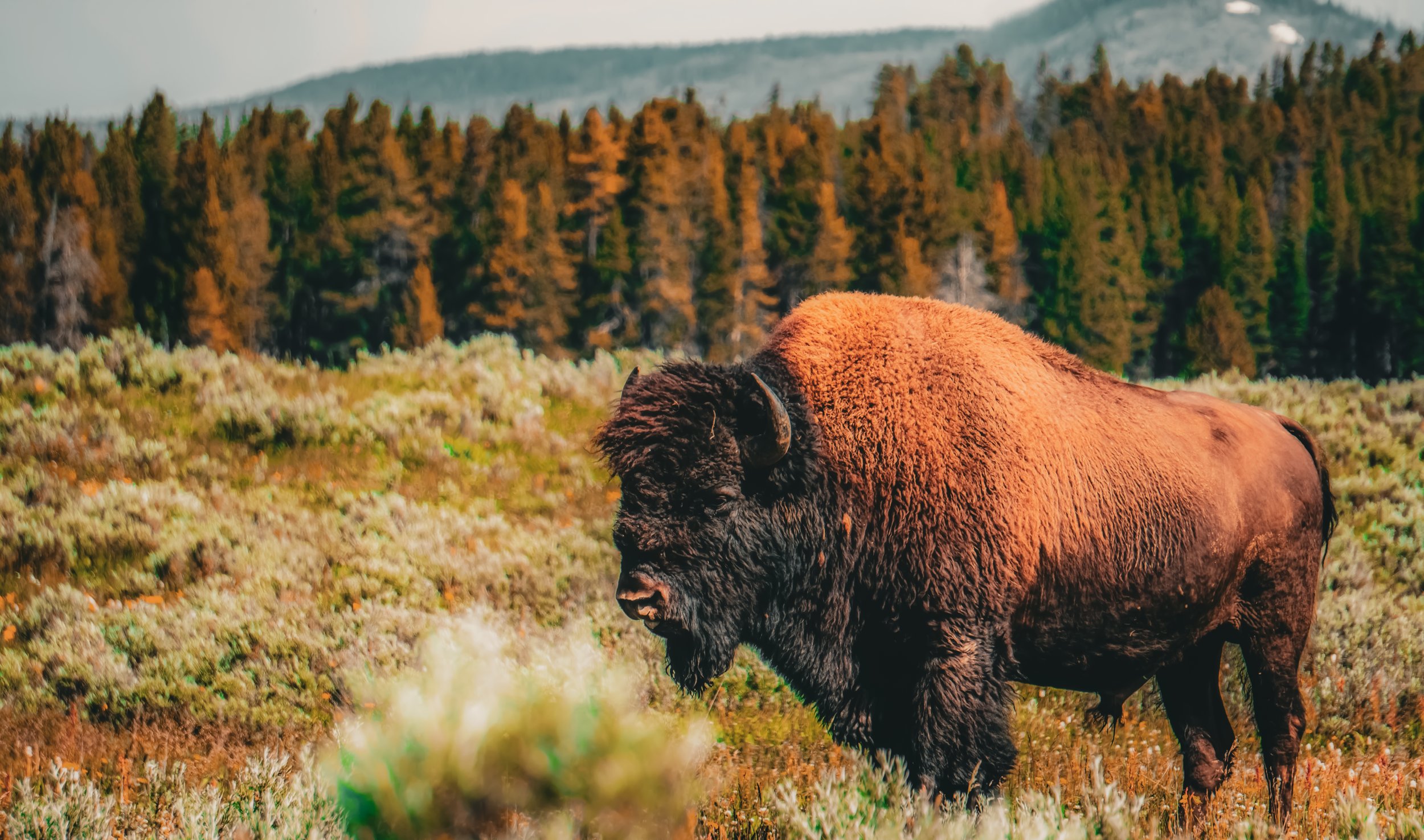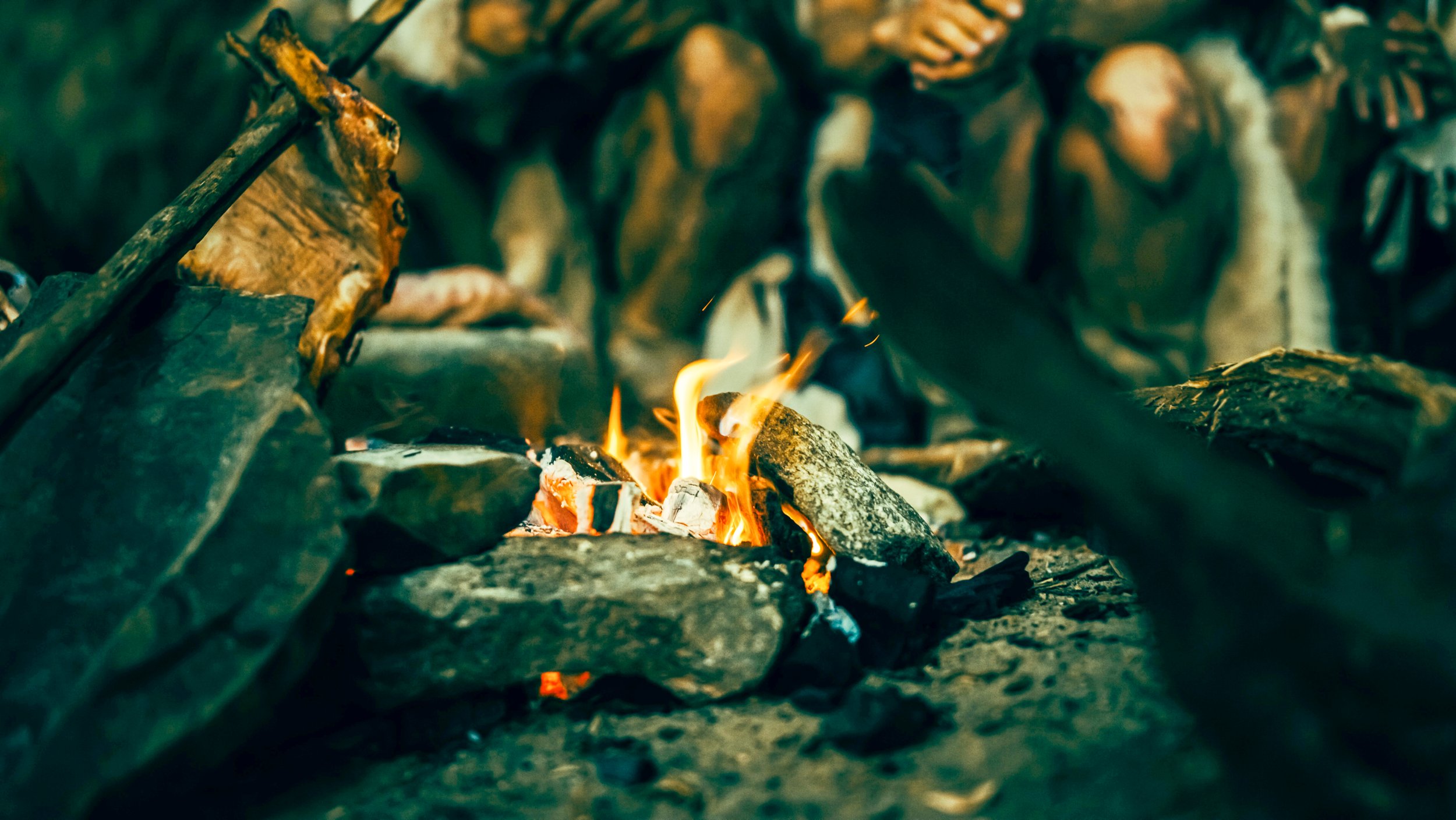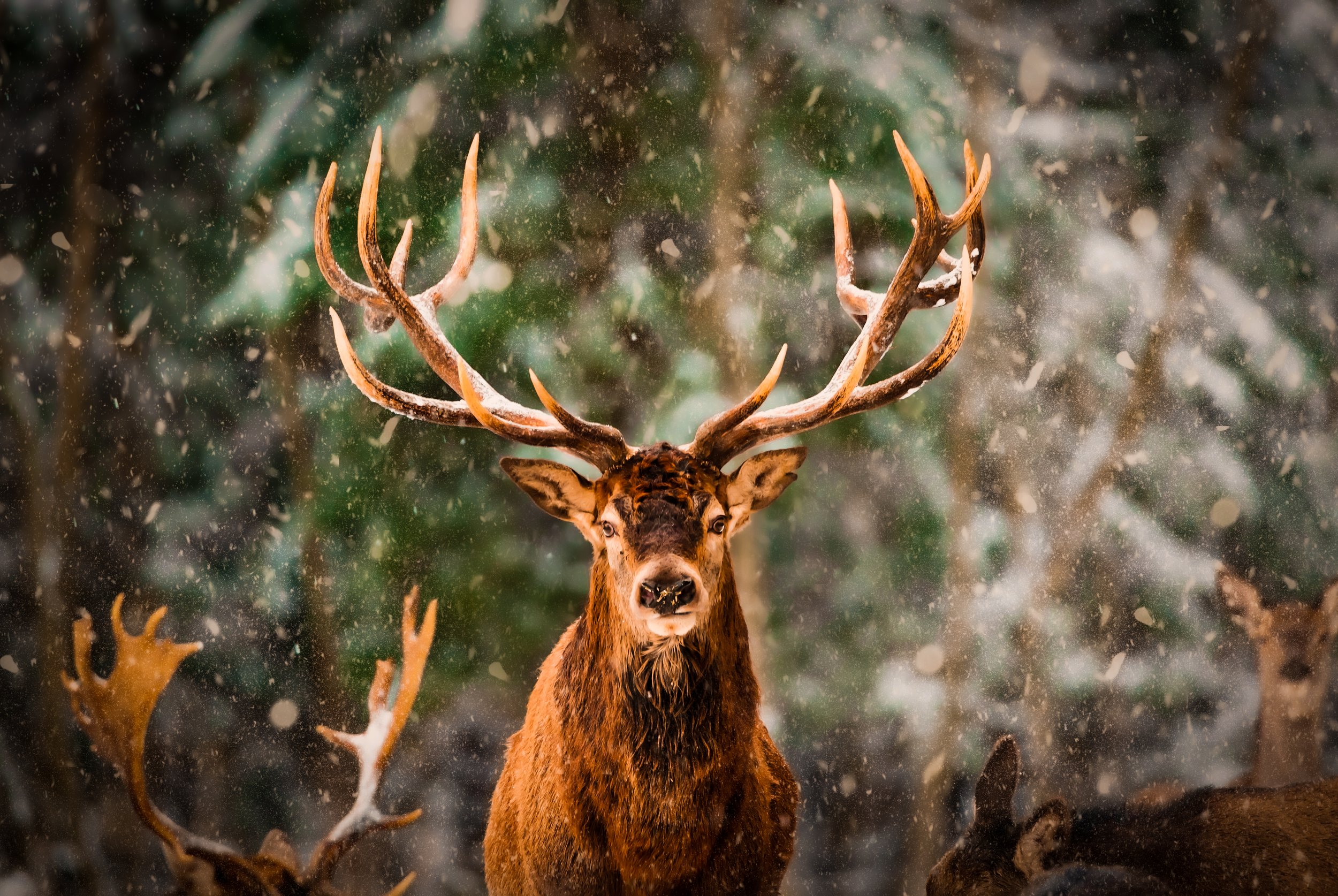I’m not vegan anymore, but i still won’t eat that….
Plains Bison
I trust nature implicitly. I have an unshakable faith in her wild, creative intelligence, the way some folks have an unshakable faith in their religion.
My purpose is to be a good earthling with a light footprint and a positive impact. I was never vegan for the trend, and so although some of my consumption habits have changed, my ethics around those choices have not.
I was very young when I heard my Dad say ‘milk is for baby cows’. So simple, and rooted in a shared faith in the wild intelligence of nature. ‘Surely, if humans were meant to be breastfeeding into adulthood, we would be breastfeeding into adulthood’, I thought. Nature made human breast milk - perfect in nutrition and deeply wise in it’s ability to adapt throughout a baby human’s life to meet evolving needs - for human babies. Nature made cow breast milk - a substance that has everything a 40# animal with two stomachs would need to grow to 400# - for baby cows. Perfectly designed and species-appropriate.
Humans have existed in our current form for around half a million years. That’s about 20,000 generations of humans. Up until 10,000 years ago, we were hunter-gatherers - that’s around 400 generations. We’ve been wild animals, hunting and foraging, for the overwhelming majority of our existence! The industrialization of our food began around 11 generations ago. Industrialized food is so new to our bodies that sometimes our bodies barely recognize it as food…enter metabolic disease.
Wow. 20,000 generations of humans…and only 400 generations of farming.
How quickly do humans evolve to adapt to dietary changes? Dairy is a great case study. Anthropological research shows that humans were lactose-intolerant when they began consuming dairy in Southwest Asia only 10,000 years ago. Human babies can handle dairy, but human adults needed to consume dairy from cattle for almost 3,000 years before evolving the enzyme lactase, which allows us to digest cow’s milk. There are some groups of humans around the world who are widely lactose-intolerant, as their cultures never really adopted dairy consumption the way Europe, for example, has.
As I’ve contemplated the way I want to participate in our food system, the cells I want to assimilate into my own, and the ecological future I want to co-create with my consumption choices… the evolution of human consumption has a heavy weigh-in. I believe farming is an amazing feat of human creativity (or is was it alien intervention that brought us agriculture? Dun dunn dunnnn). For the overwhelming majority of human existence, our species has been hunter-gatherers. Agriculture paved the way for capitalism, while also being key to our expansion and allowing us the spare time to develop philosophy & science, while also facilitating the carving of a divide between human & nature. As with most things, it’s pretty nuanced. While I feel that agriculture is a pillar of human civilization, engaging with a hunted & gathered food system feels so distinctly…human.
I also believe in the cosmic and karmic forces of food. The cosmic forces of food being the contribution of the cosmos - the stardust that makes up the molecules of the things we eat. Our bodies are constantly regenerating - to the extent that every 7-10 years, you’re literally a new person made from new cells that your body made for you. Your body builds these cells, from the food you feed it! This is where the saying ‘you are what you eat’ comes from. The cosmic forces of food have a substantial impact on our health.
The karmic forces, to me, involve the overall karmic load of the food. I don’t consume chocolate bars made from cacao that was grown by child slaves. I don’t want to consume food that was blasted with radiation. I don’t want to consume food that was made in a factory full of oppressed workers. I want food grown by happy people who are well cared for. I want food grown in clean soil, under the sun, harvested by humans who are as supported at their end of the system as I am at my end. ‘High vibe’ food, if you will (I’m mindful of what that implies about subsequent ‘low-vibe’ food, and that’s a chat for another day). You can totally roll your eyes and scoff at me - I simply believe that people and planet should be well cared for and when they are, the food is more nourishing on an energetic and material level. ( Check out this compilation of essays on ecological medicine assembled by and available through Bioneers)
You might disagree with me, or you might now understand why I don’t want to be involved in a situation where animals are forced in to existence for the sole purpose of being used by humans, raised in confined conditions with hard floors and fluorescent lights, never having the ability to engage with their natural and instinctive behaviours, only to later be forced on to a truck, terrified, and hauled off to slaughter. Mass production of fruits, vegetables, legumes nuts herbs and flowers is also a huge problem for our global ecosystem…but the majority of edible plants grown are for feeding the animals that we eat. The trade-off is inefficient, too; it takes 2.5lbs of grain and 1800 gallons of water to produce 1lb of beef.
Now of course, not all animals eaten come from factory farms. The USDA has determined that meat can be labelled ‘free-range’ so long as the animal is able to free range for 50% of it’s life. According to Our World in Data, 1% of meat in America is free range. So, not all, but #most. Worth noting - according to the Food and Agriculture Association, we slaughter 80 billion animals per year around the world, and over 20% of meat globally is discarded or wasted.
Since I moved from Toronto to Beaverton, a tiny rural farm and cottage town on Lake Simcoe, I’ve gained better access to meats from small farms, and I’ve visited many that I truly felt were raising happy animals. My favourites have been a Bison farm (check out Thunder Ridge Bison), and a lovely lady in my neighbourhood who raises some very happy ducks.
I broke my almost decade-long vegan streak, something I had previously dabbled in on and off from a young age, on pemmican strips - a Native American dried bison meat product. I cultivated a mindful set and setting, purchased the product from an aligned brand, Mitsoh, and can honestly say that it was a spiritual experience. I had transitioned my pets’ foods over to wild species a few years beforehand, and although still farmed, I felt good about supporting businesses that got native ruminants back on the land.
Before the colonization of the Americas, bison roamed the land in the millions - an estimated 40-60 million. Fast-forward to 2025, and America is host to around 30 million meat and dairy cows and around half a million bison. The regenerative model of farming is based upon the impact of natural, native ruminants grazing, and the idea that we can mimic this on farms in pastures. I hope to see factory farms transition to regenerative farms, however it’s worth noting that there is not enough land in the America’s to feed the entire population of the Americas free-range meat products. Unfortunately, regenerative agriculture can save the planet but it still requires that humans reduce meat consumption…or drastically reduce the human population (and we just won’t go there, obviously). In order to meet the current rise in meat consumption, America would need to grow in grazable land mass by 30%.
Rematriation is the act of restoring a people's relationship with their ancestral land. It's a term often used by Indigenous women to describe their work to restore balance. Regeneration of the land goes hand-in-hand with rematriation, and I believe that it should be a component of so-called Canada’s reconciliation efforts. I felt good about supporting a small arm of the food system that will invest in restoring the bison population in Canada. I recognize that it isn’t necessary to eat the animals, but I also know that capitalism moves faster than conservation. While it’s important to me to support conservation of ecosystems through direct and indirect action, purchasing bison products became an added contribution to the effort.
I’ve become even more mindful of what I consume than I was when vegan.
Now don’t get me wrong - I’ve been a whole foods plant based vegan, avoiding processed food and making just about everything from scratch. And you won’t hear about any health complaints from me - in fact, a huge catalyst for going vegan to begin with, was my health. With the support of my naturopathic doctor, I transitioned to vegan a decade ago and it resolved my health problems. It helps that I studied Holistic Nutrition, and knew how to support my being through sound nutrition.
But now that I’ve added a few wild meats and occasional duck eggs from that happy duck lady down the road, I find myself even more deeply involved in the process of determining what I’m comfortable consuming - and ultimately, what type of food system I want to participate in. I don’t order meat products at restaurants and I don’t buy them at grocery stores - I eat by my own ethical standards and I don’t expect businesses to be aligned with them.
I’m over the whole judging-what-you-eat thing. I certainly can’t say that my way is THE way, and I think that there is a wide spectrum of sustainable food choices, mostly dependent on where you live. All I can do is choose what systems I want to see more of, and fund them with my purchases and consumption choices. And when I can’t access the animal products that align with my evolving choices…I still grab some tofu.



